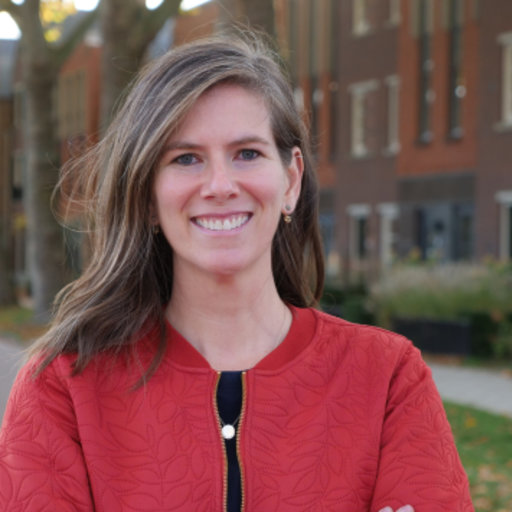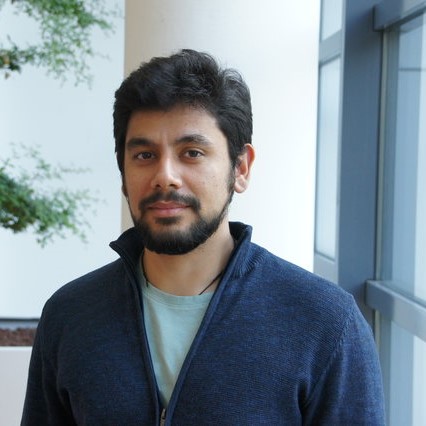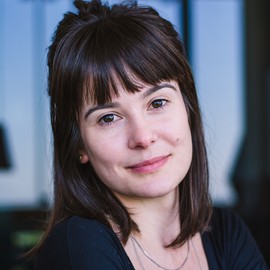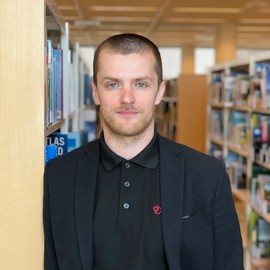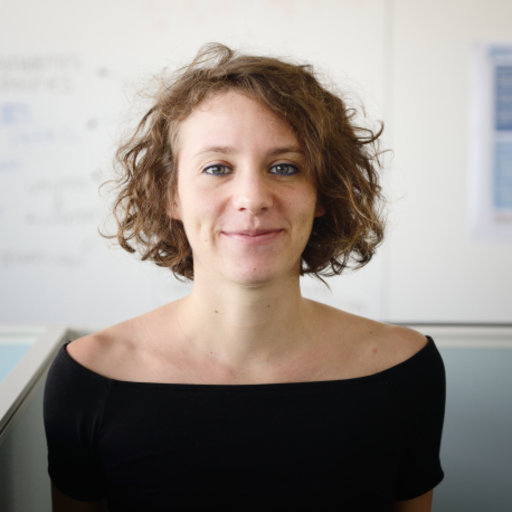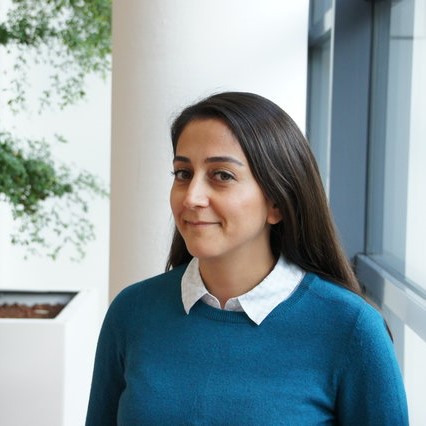
Resilience for All
Training Event at the UN-Habitat World Urban Forum (In-person and Online)Thursday, June 30 2022, 09:00 - 11:45 AM (CET)
Official event page: https://wuf.unhabitat.org/event/resilience-all
Access the video stream on the WUF app and Website: https://wuf.unhabitat.org/participate
Mentimeter for participants:
Go to: https://www.menti.com ( Access code: 6385 4323)

TU Delft will organize an interdisciplinary workshop entitled 'Resilience for All' at the UN-Habitat's World Urban Forum (WUF) to be held in Poland between 26 - 30 June 2022. The event will present scientific planning support tools and methods at the intersection of Equitable Futures and Urban Resilience emerging from the collective research experience from members of the Faculties of Technology Policy & Management, Architecture & the Built Environment, and Industrial Design Engineering. Participants will learn from design-driven and data-driven methods applied to real case studies for evidence-based planning to build resilience and equity in spatially explicit ways. This event is supported by four thematic labs: TPM Resilience Lab, TPM AI Lab, Centre for Urban Science and Policy, and TU Delft Global Urban Lab.
The event targets urban planners, policymakers, civil servants, and scientists working on various aspects of urban resilience and equity in the light of climate change.
Invited Speakers:
Organizers:
Schedule (detailed abstracts at the end):
In person: ICC Multifunction Hall Room 4, International Congress Centre (MCK), Katowice, Poland
Online: Via World Urban Forum app
[9:00 - 9:10 / 10mins]: Opening Remarks
[09:10 - 09:40 / 30mins]
ROUND 1: Socio-spatial equity and justice
- Inclusive Prosperity, Dr. Roberto Rocco
- Urban Inequalities, Dr. Trivik Verma
- Room for Questions
[9:40 - 10:10 / 30mins]
ROUND 2: Geographic data science and Machine Learning for resilience
- Geospatial science for resilience, Dr. Ylenia Casali
- Isn't this everyone's dream: How to avoid biases in resilience assessment, Mikhail Sirenko
- Room for Questions
[10:10 - 10:50 / 40mins]
ROUND 3: Participatory and co-design processes for equity and resilience
- Instruments for Sustainable Urban Riverfronts, Dr. Claudiu Forgaci
- Public Participation GIS for co-designing resilient urban policies, Dr. Carissa Champlin
- Citizen Voice, Dr. Juliana Goncalves
- Room for Questions
[10:50 - 11:20 / 30 mins]
ROUND 4: Spatial tools for urban resilience
- Geospatial Visualization for Disaster Management, Dr. Nazli Yonca Aydin
- Re-Ground: Exploring resilient land-use scenarios, Supriya Krishnan
- Room for Questions
[11:20 - 11:40 / 20mins] Expert Panel and Audience Q&A
[11:40 - 11:45 / 5mins] Closing remarks and strategy for follow-up
Reading Resources:

Supported by:
Detailed abstracts:
[09:10 - 09:30] ROUND 1: Socio-spatial equity and Justice
- Inclusive Prosperity, Dr. Roberto Rocco
We discuss spatial Justice as an operational concept in urban resilience planning and advancing Justice as a definitive internal good in planning processes. This will be illustrated by the concept of "Brede Welvaart" (Inclusive Prosperity) and the corresponding methodology being used by the Dutch national government to measure social inclusion through its "Inclusive Prosperity Monitor ." This includes a detailed explanation of the indicators and methods.
- Urban Inequalities, Dr. Trivik Verma
Cities are continually transforming and are faced with some of the most pressing challenges, including climate change and forced migration. The appeal of using technology-mediated infrastructure as an answer to all our problems has transformed our policies to envision cities as “smarter”, “resilient”, and “sustainable” for a better, more liveable future. But who are we improving cities for? Who gets to be served and who is left behind? While such political stances offer opportunities for some, many more have suffered disproportionately by being pushed to the physical and technological peripheries of urban spaces. In this talk, we will explore the current condition of spatial inequalities in our cities and evaluate who receives the benefits of digital transformations. Fostering just cities will require us to challenge our perspectives on technology. What is more, we will have to shift our mindset from relying on machines that have adverse consequences for certain communities, to listening to communities themselves.
[09:40 - 10:10] ROUND 2: Geographic Data Science and Machine Learning for Resilience
- Geospatial science for resilience, Dr. Ylenia Casali
We present the potential of quantitatively using data analytics tools (i.e., GIS, Python) to analyze urban resilience and inequality polarization in cities. Using a machine learning (ML) method based on a case study, we identify socio-spatial patterns to demonstrate socio-economic discrepancies.
- Isn't this everyone's dream: How to avoid biases in resilience assessment, Mikhail Sirenko
Urban resilience blends social, technical, and environmental systems. Hence, using conventional assessment indicators from single disciplines leads to bias and enhances inequalities. We use open data and machine learning to demonstrate how assessing resilience outcomes with commonly used indicators can create a set of remarkably different and biased results. For instance, using age groups as an indicator of vulnerability leaves people with low income and health issues. We demonstrate the case of the 2019 European heatwave in the Netherlands.
[10:10 - 10:50] ROUND 3: Participatory and Co-design processes for Equity and Resilience
- Instruments for Sustainable Urban Riverfronts, Dr. Claudiu Forgaci
Instruments for Sustainable Urban Riverfronts (I-SURF) addresses the challenge of urban environmental and ecological degradation and public space quality in riverfront urban areas of Amsterdam. The project developed a systematic approach for design instruments to aid designers, planners, decision-makers, and other stakeholders in co-designing spatial interventions. This enables the integration of complex environmental and ecological goals in sustainable riverfronts facing resilience challenges.
- Public Participation GIS for co-designing resilient urban policies, Dr. Carissa Champlin
The adoption of data-driven policy-making practices is opening doors to citizens as co-creators of their own data. Yet, the COVID-19 pandemic shows that citizen participation in data-driven policy-making is far from standard practice. We showcase the use of a Public Participation Geographic Information System (PPGIS) by 1077 citizens to map their activity routines during the COVID-19 lockdown 2021 in the Netherlands and explain how co-design is becoming an essential method for both resilient urban policy-making and planning support tool design.
- Citizen Voice, Dr. Juliana Goncalves
Citizen Voice is a GIS-based and interactive decision-support tool to collect socio-spatial data from citizens via public participation. It is currently being developed through a co-design process to include the needs of urban stakeholders using dialogue, joint analysis, debate, and deliberation, which are valuable to establish guidelines to improve public participation.
[10:50 - 11:20] ROUND 4: Spatial Tools for Urban Resilience
- Geospatial Visualization for Disaster Management, Dr. Nazli Yonca Aydin
Decision support systems are practical instruments that could simulate different scenarios and visualize alternative futures and solution spaces for the decision-maker and stakeholders for their consideration and ultimately help build resilient urban futures. Geo-visualization can significantly increase the effectiveness of decision support systems by providing interpretability. We will demonstrate the design of an interactive visualization decision support system to (a) translate urban resilience applications and (b) visualize time series data sets, and multiple points attribute to increasing data readability to improve the disaster management process.
- Re-Ground: Exploring resilient land-use scenarios, Supriya Krishnan
Re-Ground is a methodology that uses a combination of model-based urban land-use simulations and design thinking to develop resilient spatial planning scenarios. This method presents spatial evidence for practitioners to mainstream risks into long-term urbanization strategies. Planning future cities is a complex process requiring collaboration among various disciplines. Building spatial evidence using digital twins and land-use simulations is an emerging tool for practitioners and researchers to test the impacts of future changes on urban growth. These promise opportunities for imagining and thinking through a broad range of future scenarios essential to building resilient and just futures. However, they fall short in considering functional dependencies, biases, and planning constraints. This talk discusses how design thinking can be crucial in using quantitative simulation models for future urban planning. We augment model-based urban land-use simulations with design thinking to develop well-informed future planning scenarios. We use the Metropolitan Region of Amsterdam case study as a testbed to demonstrate our results and report findings from an exploratory expert design workshop. Finally, we reflect on the model results and design scenarios, which can be used as a planning support tool for an equitable and resilient urban future.

